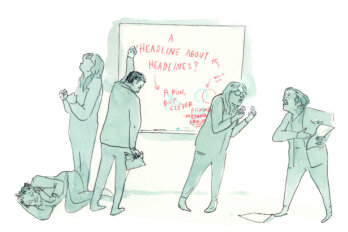Bad Counsel
Justin Ling’s article “Shadow Government: The Consulting Firms Telling Ottawa What to Do” pushed one of my very large buttons: the theatre of large consultancies. I sent my last invoice for my own consulting service about two months ago, more certain than ever that the path to meaningful, lasting, and mutually beneficial change isn’t the consultant-to-client approach in practice today. Before I was one myself, I used consultants—it’s great to bring in smart, indefatigable people without positions of power or institutional biases to get to the bottom of complicated problems. Unfortunately, knowing the problem and creating a solution are miles apart. External consultants can’t fix problems mired in, or even created by, company cultures. For example, designing a complaint-handling system is of little use if the system doesn’t address the root cause of complaints. Far better to spend money on support for employees to solve the problem: it ensures that the people who have to implement solutions know why and how to do so. Why don’t we focus time and resources on this common-sense approach?
Carol Borghesi
Burnaby, BC
Institutions of Abuse
Reading Zander Sherman’s “How Could They Just Lose Him?” (September/October), about the disappearance of Robin Windross at the Huronia Regional Centre, I was reminded of just how easily one could get lost in this abhorrent, monolithic institution known as HRC. One of my responsibilities as an experienced assistant care worker for adults with developmental disabilities at a community in Toronto was to take young people to HRC for a tour to help them understand the living situation of many people with disabilities in Ontario. I ended all of my visits with a tear in my eye because of the inhuman conditions at that place. But the most tragic moments were always as I left, because, inevitably, a resident would grab my hand and beg me to take them with me. We need to keep alive the stories of those with developmental disabilities who suffered quietly in deplorable conditions under the watchful eye of the government for many decades. Maybe these large institutions have finally closed their doors, but don’t for one moment think all is a bed of roses for the disabled. Hidden in our neighbourhoods are homes housing people with disabilities—woefully understaffed and overpopulated.
Matthew Marosszeky
Aurora, ON
Full of Enshitt
I appreciated that, in his essay “The Scourge of Self-Checkout,” David Moscrop references Cory Doctorow’s 2022 coinage “enshittification,” a word that I now find myself dropping frequently into conversation. The self-checkout is just another instance of greed-driven corporations man-handling “the customer service experience.” The phone greeting “In order to serve you better, please select from the following menu items” has already been enraging us for decades. These cynical offers of improved service simply hope that frustration will prompt us to accept what we’re given, and to just go away quietly. But we must speak up and stop letting them just enshittify all over us!
Richard Corman
Eganville, ON





